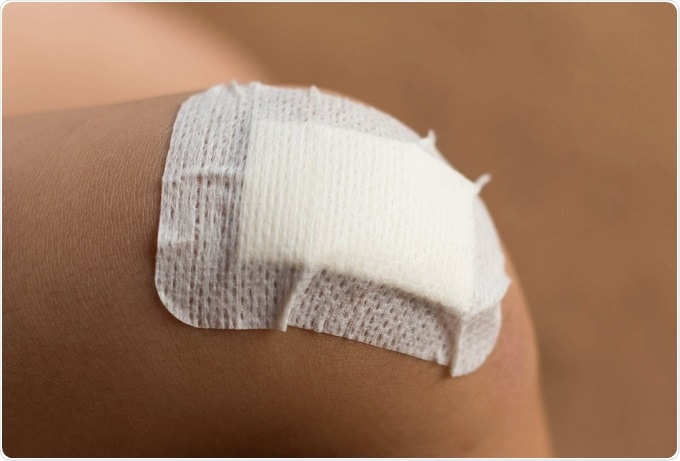Nov 9 2017
A new study conducted at the Medical Research Council (MRC) Laboratory of Molecular Biology, UK, has found how wound healing is regulated by the body clock in such a way that injuries that occured at daytime heal nearly 60% faster than that at night.
 © benjamas11/Shutterstock.com
© benjamas11/Shutterstock.com
The study, which is the first of its kind to explain how the internal body clock regulate and optimize wound healing by skin cells during day, is expected to have implications for medical procedures like surgery and give targets to develop drugs for enhancing wound healing.
Almost all cells in the human body are regulated by the circadian rhythm or body clock via a 24-hr cycle for most processes like metabolism, hormone secretion, and sleeping. Trials on skin cells such as, keratinocytes and fibroblasts, as well as on mice had indicated that wounds incurred on skin during the daytime of the internal body clock healed nearly two times more efficiently than wounds sustained at night.
In collaboration with clinicians, the current study analyzed the medical records of 118 patients with burn injuries, by utilizing a database from all major burns units in England and Wales to find that this effect was also reflected here, in humans.
The results indicated that the average duration taken to heal by burns that happened during night was 60% longer than burns that happened at daytime. While burns that occurred between 8pm and 8am (night-time burns) were grouped as 95% healed after a median of 28 days, burns that occurred between 8am and 8pm (day-time burns) were identified to take only 17 days.
According to the researchers, the skin cells moved much faster during the body clock's daytime to the wound site in order to repair it, leading to faster healing.
This process within the cells is regulated by the increased protein activity involved in repair and cell movement—especially of actin. The actin filaments give support and enable cell movement, acting like a muscle within the cell.
Also, the amount of collagen—the major structural protein in skin—present in daytime wounds as depositions at the site of the wound is more and it sustained for nearly 2 weeks after the wound occurred.
According to the researchers, this process is thought to be regulated by internal circadian clocks of the cells, and not via signal transmission across the body, since mouse and human skin cells developed in a laboratory dish displayed the similar effect.
According to Dr. John O'Neill, the senior author of the study, the difference in the speed of wound healing between the body clock's day and night may be because of the fact that the bodies have evolved to heal fastest during the daytime, when chances of injuries are more.
He added that the study findings go along with the lab results that faster healing occurs during the active phase, i.e.; night-time in mice and daytime in humans. It is possible to reset the healing response in both mice and cells via tricking the cells to make it think that it is a different time of the day.
It may be that healing time could be improved by resetting the cells' clocks prior to surgery, perhaps by applying drugs that can reset the biological clock to the time of best healing in the operation site."
Dr. John O'Neill
Dr. Ned Hoyle, a lead author of the study explained that in preventing infection, effective repair of the skin is vital; improper healing can make the wounds chronic and can lead to excessive scarring.
Further research on the association of body clocks with wound healing can aid in drug discovery to prevent defective wound healing and to enhance surgical outcomes, added Dr. Hoyle.